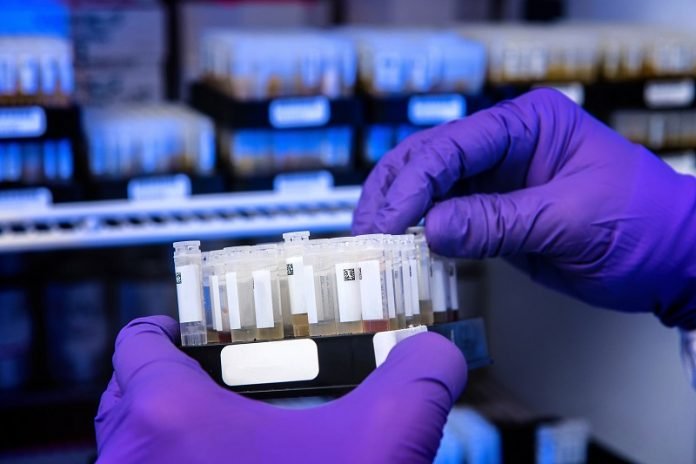
Scientists from RCSI University of Medicine and Health Sciences found an effective treatment for critically ill COVID-19 patients.
They found that using an anti-inflammatory protein, alpha-1 antitryspin (AAT), could treat COVID-19 patients who have progressed to acute respiratory distress syndrome (ARDS).
The research is published in Med and was conducted by Dr. Oliver McElvaney et al.
ARDS is a highly inflammatory state hallmarked by airway damage, respiratory failure, and an increased risk of death. Treatment options for COVID-19 patients who have ARDS are particularly limited.
AAT is a naturally occurring human protein produced by the liver and released into the bloodstream which normally acts to protect the lungs from the destructive actions of common illnesses.
In this study, AAT that had been purified from the blood of healthy donors was administered to patients with COVID-19-associated ARDS, with the aim of reducing inflammation.
The team found that treatment with AAT led to decreased inflammation after one week.
The study also found that the treatment was safe and well-tolerated, and did not interfere with patients’ ability to generate their own protective response to COVID-19.
This discovery suggests a potentially important role for AAT in the treatment of ARDS and other inflammatory diseases associated with COVID-19.
The researchers say that AAT might be able to provide some protection against the more harmful types of inflammation that arise in severe COVID-19 and other conditions with a similar inflammatory profile.
The study forms the basis for a larger trial to see how much of an effect reducing inflammation using AAT has on clinical outcomes such as mortality.
If you care about COVID, please read studies about existing drugs that can kill the COVID-19 virus, and this drug is effective in treating severe COVID-19.
For more information about COVID, please see recent studies about the cause of severe inflammation in COVID-19, and results showing green tea offers new hope to beat COVID-19.
Copyright © 2022 Knowridge Science Report. All rights reserved.



